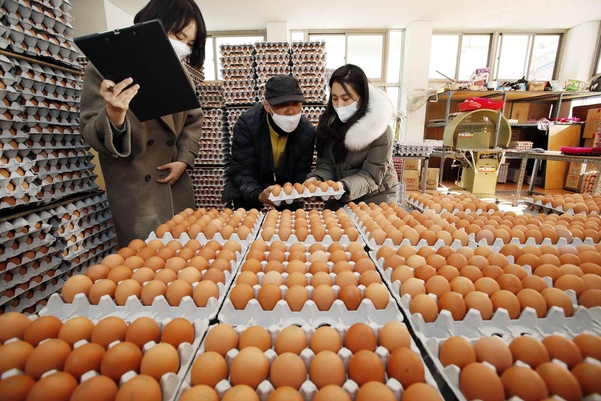Input 2021.01.19 15:03 | Revision 2021.01.19 15:33
In 2016-2017, tariffs were also exempted during AI, so eggs were procured from the US
As egg prices skyrocket due to highly pathogenic avian influenza (AI), the government cut tariffs on eggs in four years to secure imports. This is a countermeasure taken when the supply of eggs was disrupted as more than 8 million laying hens near the AI-prone area were killed while the demand for eggs was increasing due to the Lunar New Year holidays and new coronavirus infection (Corona 19).

According to the Customs Act, quota tariffs are a system in which the basic tariff rate of specific goods can be added or subtracted up to the limit of 40% (p) for price stability, supply and demand, and industrial competitiveness. Currently, the tariff rate for eggs and processed egg products is lower than 40%, including fresh eggs (27%), so a full tariff exemption is possible.
Earlier, even in 2017, when egg prices surged due to highly pathogenic AI shock, the government exempted import duties from January and stabilized prices by importing eggs and processed eggs from the United States and Spain. At that time, the total amount of eggs and egg products imported under the quota tariff amounted to $27.8 million, and the estimated amount of tax assistance through duty-free was 6.1 billion won.
The reason why the government is pushing for tax rate cuts for egg imports is that the recent rise in egg prices is steep. According to the Ministry of Agriculture and Food, the production price of eggs as of the afternoon of the 18th was 1570 won for 10 special eggs, up 34.9% from 1164 last year. Compared to the previous month, it also surged 33.4%. Consumer prices also rose 26.6% compared to the previous year and 19.1% compared to the previous month.
However, the outlook for domestic egg supply is not bright. This is because, with a total of 64 poultry farms that have been diagnosed with highly pathogenic AI in Korea, 8439,000 laying hens (egg chickens) near the confirmed farms were killed. This is much more damaging than 5444,000 broilers (chicken for chicken) and 1623,000 meat ducks.
